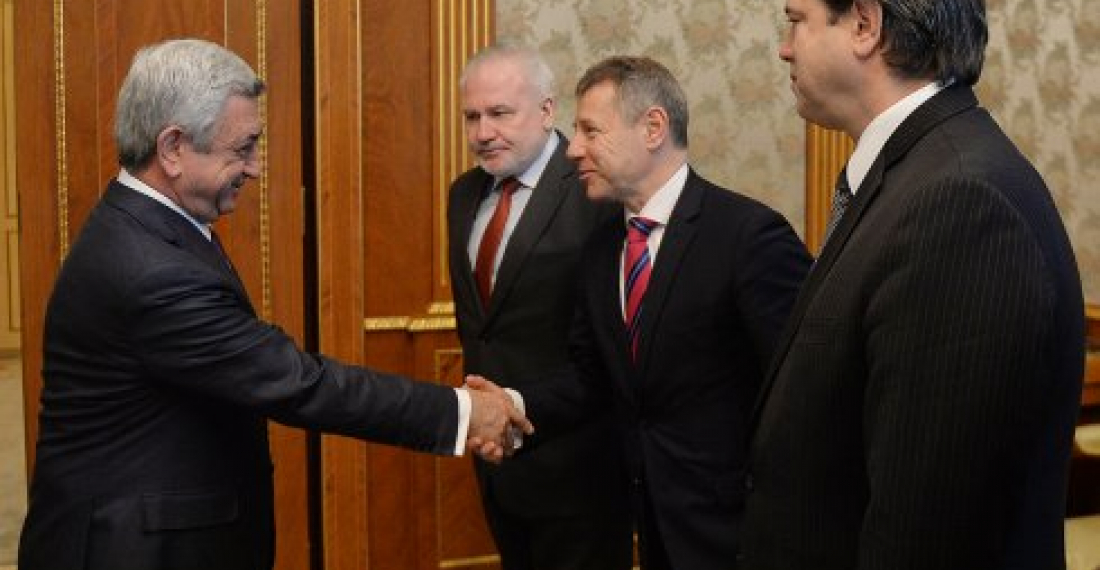Armenian President Serzh Sargsyan on Friday (9 February) met with Ambassadors Igor Popov of the Russian Federation, Stéphane Visconti of France, and Andrew Schofer of the United States of America, who co-chair the OSCE Minsk Process on Karabakh, as well as thePersonal Representative of the OSCE Chairperson-in-Office Andrzej Kasprzyk.
The press service of the Armenian president said that the diplomats presented to President Sargsyan the results of their meetings in Baku earlier this week.
According to the source, President Sargsyan called the diplomat's attention to the recent statements made in Baku, "noting that they evidence once again that Azerbaijan is still too far from showing readiness to promote the negotiation process on the basis of the proposals made by the Minsk Group Co-Chairs, as well as demonstrate Baku's response to the Co-Chairs' continued calls to prepare societies for peace."
It is understood that the diplomats will also visit Nagorno-Karabakh.
source: commonspace.eu with the press service of the president of Armenia
photo: President Serzh Sargsyan of Armenia welcoming the diplomats who represent the co-Chair countries of the OSCE Minsk process during their visit to Yerevan on 9 February 2018 (picture courtesy of the press service of the president of Armenia)






